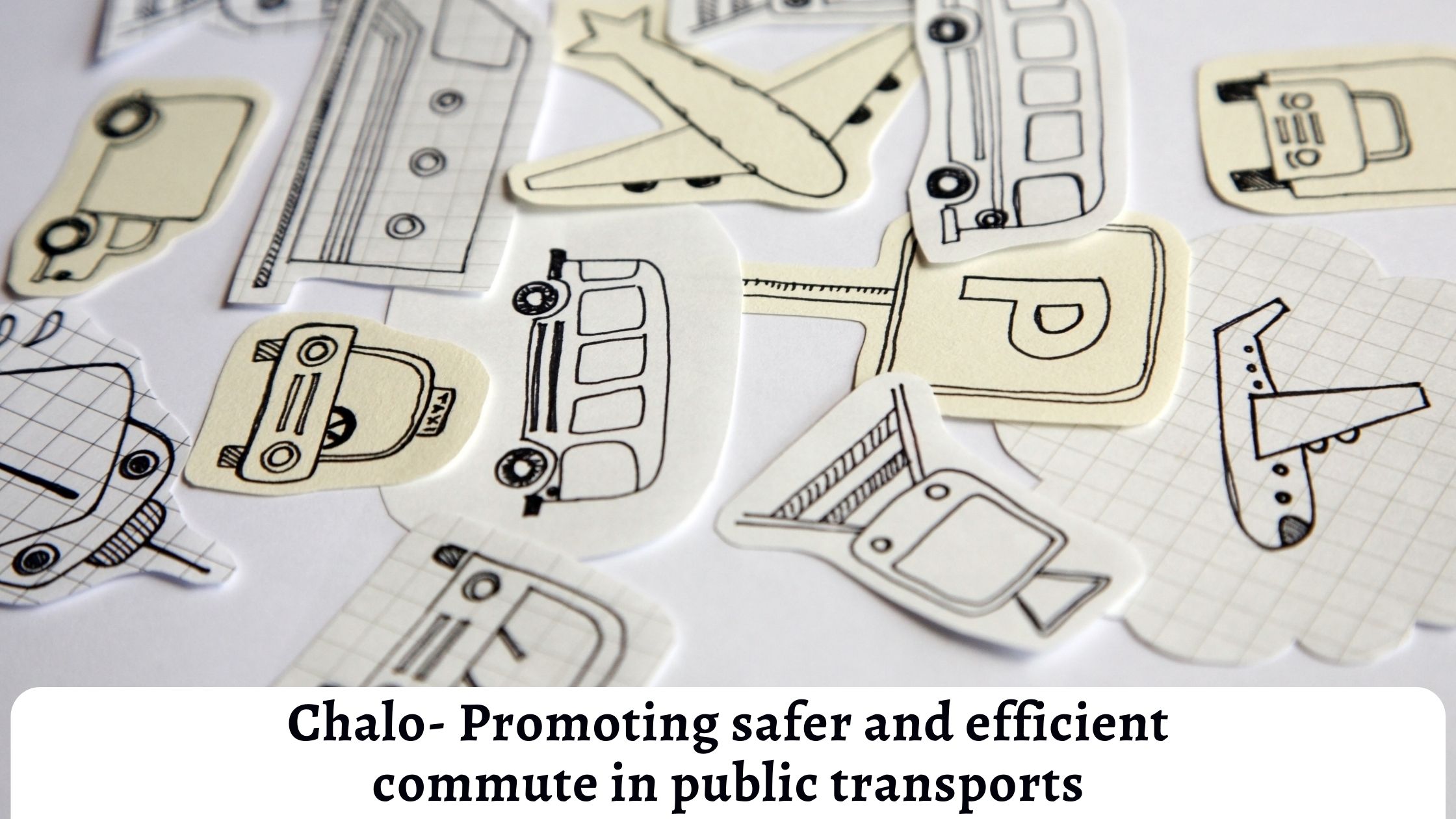One of the largest modes of public transport in our country is the bus. According to reports from various state transport undertakings in 2018, more than 68 million people choose bus as a mode of transport for both urban and intercity commutes. While a city like Mumbai depends upon the vast suburban train network and Delhi with its expansive metro rail connectivity, other cities heavily depend upon buses for public transportation.
Our public transport systems are extremely chaotic, and there are no specific timetables which the commuters can follow. Aiming to come up with a solution to this problem, Chalo, a Mumbai-based platform for public transport management, was co-founded in 2014 by Vinayak Bhavnani, Dhruv Chopra, Mohit Dubey and Priya Singh Dubey.
Till now, the startup has raised over $23 million in capital funds from Xiaomi, Waterbridge, Venture Highway and some angel investors including Neeraj Arora and Amit Singhal. The dedicated app is currently active across 23 cities. It also operates buses in 12 cities with over 45 million rides per month.
Chalo's platform provides three specific services: the application where the movement of buses can be tracked on a real-time basis, and NFC touch-to-pay card and monthly/multi-ride passes.
Construction
In these times where the rate of getting infected by COVID-19 is on the rise, the focus is on ensuring safer transport without any health hazards. Chalo app is now enabling its users to buy passes/tickets over the Chalo App which allow the commuters to simply scan their QR code to travel to the designated destination. This has reduced the need for contact-based payment for tickets or visiting the counter for issuing of a multi-ride pass.
The founders realised that the usage of private vehicles can only be brought to control if public transportation modes were made to be more reliable and convenient for all passengers. Since suburban train and metro rail systems are limited to metropolitan cities, buses continue to be the most predominant mode of public transportation.
However, there has been a major shift within passenger's preference to use buses as the system was completely unreliable. The founders believed that bringing in a fresh perspective and implementing reliability, punctuality and cleanliness will provide a much-needed breather for bus systems.
The services
Once the commuter downloads the application which is available across all mobile platforms, they can track the movement of buses on a real-time basis and be informed about the arrival time of the bus he/she wishes to board. It tracks the live GPS position of the buses which helps the users locate the nearest bus stop as well as plan their trip well ahead using the multi-modal commute planner.
Another offering is the Chalo Card, which can be recharged over time or used as a monthly pass. The card can be purchased from the conductor and the commuter can just tap the card to pay or simply scan the designated QR code to travel.
The startup works in partnership with transport undertakings and bus operators to implement an end-to-end solution from the GPS hardware to cloud connectivity with the application being an interface. This initiative helps to make the public commute seamless and the user saves up to 30 minutes in waiting time.
Conclusion
In the last two years, Chalo has marked its presence across 28 cities and it offers live tracking of buses across 23 cities. The startup's tech platform has been able to increase bus ridership by leaps and bounds, averaging at least 20 to 30 per cent increase.
The startup has built their entire platform to cater to the public transportation system- starting from installing GPS devices on buses to real-time tracking, automated fare collection systems to installing ticketing devices and validators in buses.
It also operates two thousand buses every day under its banner.
Chalo’s revenue model is mostly B2C where it partners up with operators or service undertakings and charges a share of the revenue collected when there is an increase in ridership.
It has tied up with the following transport corporations across India:
● BMTC: Bengaluru Metropolitan Transport Corporation, a subsidiary of KSRTC- Karnataka State Road Transport Corporation
● WBTC: West Bengal Transport Corporation
● KeSRTC: Kerala State Road Transport Corporation
● MTC: Metropolitan Transport Corporation (Tamil Nadu government’s city bus system for Chennai) and TNSTC: Tamil Nadu State Transport Corporation
● ASTC: Assam State Transport Corporation
● AMTS: Ahmedabad Metropolitan Transport System
● KMRL: Kochi Metro Rail Limited
● AICTSL: Atal Indore City Transport Service Limited
● BCLL: Bhopal City Link Limited
● JCTSL: Jabalpur City Transport Service Limited
● SMC: Surat Municipal Corporation
● LCTSL: Lucknow City Transport Service Limited
● NMC: Nagpur Municipal Corporation
● BSRTC: Bihar State Road Transport Corporation
● KCTSL: Kanpur City Transport Service Limited
● ACTSL: Allahabad City Transport Service Limited
● APSRTC: Andhra Pradesh State Road Transport Corporation
● UCTSL: Ujjain City Transport Service Limited
● AMCTSL: Agra-Mathura City Transport Service Limited.

